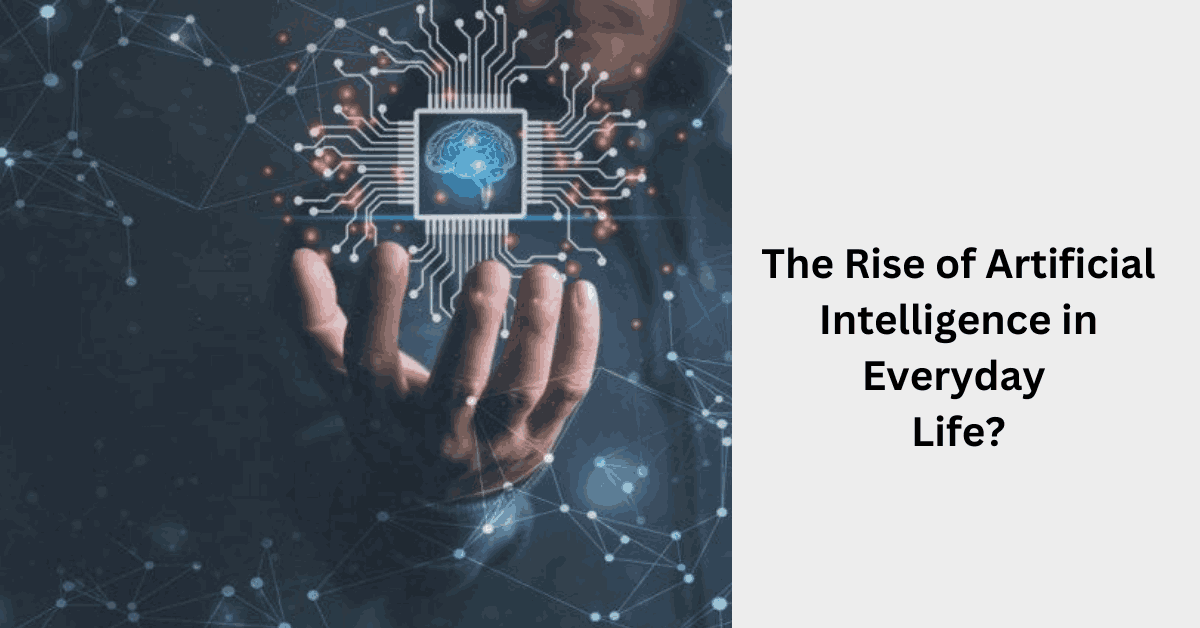In an era dominated by technological advancements, the pervasive influence of artificial intelligence (AI) has rapidly transformed the landscape of our daily lives.
From smart homes to virtual assistants, AI is not just a concept confined to science fiction; it is a tangible force shaping the way we live, work, and interact.
This article delves into the multifaceted impact of AI on various facets of our everyday existence, exploring its evolution, applications, and the implications for the future.
Table of Contents
Understanding the Foundation of AI:
At its core, AI seeks to replicate human intelligence in machines, enabling them to perform tasks that traditionally required human cognitive abilities.
The foundation of AI lies in machine learning, a subset that empowers systems to learn and improve from experience without explicit programming.
This ability to adapt and evolve distinguishes AI from conventional technologies, setting the stage for its integration into our daily routines.
AI in Everyday Devices:
One of the most noticeable manifestations of AI in everyday life is through our devices. Smartphones, equipped with AI-driven features, anticipate user preferences, streamline tasks, and enhance overall user experience.
Voice-activated assistants like Siri, Google Assistant, and Alexa have become virtual companions, responding to our commands, answering questions, and even controlling smart home devices.
Revolutionizing Healthcare:
In the realm of healthcare, AI is proving to be a game-changer. Diagnostic tools powered by machine learning algorithms can analyze medical images, detect anomalies, and assist healthcare professionals in providing more accurate and timely diagnoses.
AI-driven chatbots offer personalized health advice, contributing to the democratization of healthcare information and support.
AI in Education:
The educational landscape is also undergoing a transformation through AI. Intelligent tutoring systems adapt to individual learning styles, providing personalized learning experiences for students.
Automated grading systems streamline the assessment process, allowing educators to focus on more nuanced aspects of teaching.
Additionally, AI is contributing to the development of interactive educational content, making learning more engaging and accessible.
The Role of AI in Social Media:
Social media platforms harness the power of AI to enhance user engagement and content relevance. Algorithms analyze user behavior to curate personalized feeds, recommend connections, and even predict the type of content users are likely to share.
AI also plays a crucial role in content moderation, identifying and addressing inappropriate or harmful content.
AI and the Future of Work:
As industries evolve, so does the nature of work. AI is increasingly being integrated into business processes, automating routine tasks and enabling employees to focus on more complex, creative endeavors.
From predictive analytics to intelligent automation, AI is reshaping job roles, emphasizing the need for upskilling and adaptability in the workforce.
Ethical Considerations and Challenges:
While the rise of AI brings forth a myriad of benefits, it is not without its challenges. Ethical considerations surrounding privacy, bias in algorithms, and the potential for job displacement require careful attention. Striking a balance between innovation and ethical responsibility is essential to ensure that AI serves humanity positively.
The Future Landscape:
Looking ahead, the trajectory of AI in everyday life is poised for exponential growth. Advancements in natural language processing, computer vision, and reinforcement learning will continue to push the boundaries of what AI can achieve.
However, as AI becomes more integrated into our lives, the importance of ethical frameworks, regulations, and public awareness cannot be overstated.
In conclusion:
the rise of artificial intelligence in everyday life marks a significant paradigm shift, ushering in a new era of possibilities and challenges.
From transforming our devices and healthcare systems to influencing education and reshaping the workforce, AI’s impact is profound and far-reaching.
Embracing the potential of AI while addressing ethical considerations is key to harnessing its benefits for the betterment of society. As AI continues to evolve, so too will its role in shaping the future of our daily lives.
